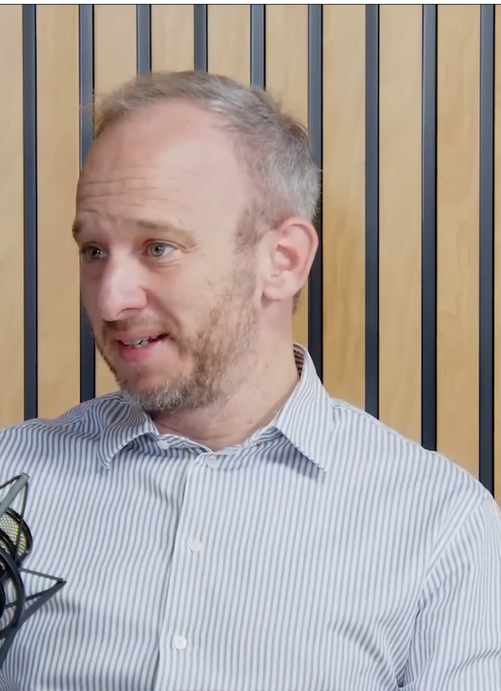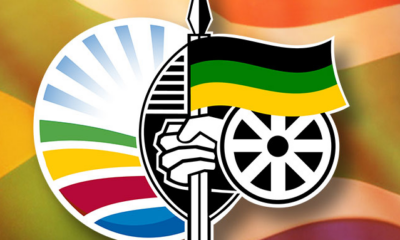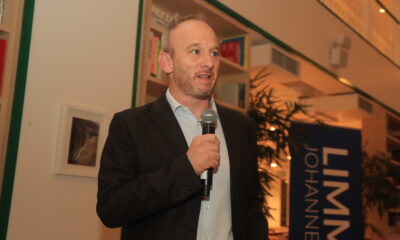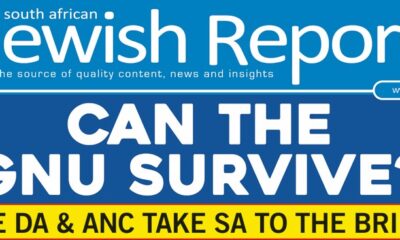
Featured Item

National unity government – so far so good
“For the first time since 1994, there’s a Cabinet that reflects the remarkable diversity of this country,” political analyst and director of the Africa Institute of the American Jewish Committee, Wayne Sussman, told the South African Jewish Board of Deputies Gauteng Conference on 15 September.
“It’s a Cabinet which cares about urban interests, suburban interests, informal-settlement interests, and township interests. It’s something we should be very optimistic about.
“Today is a better country than it was before the election,” he said. “Today is better for Jewish South Africans than it was before the elections. And today is better for South Africans than it was before the elections.”
Sussman said that after the elections, it was difficult for the African National Congress (ANC) to make up the magic number of parliamentary seats whereby it could create a Government of National Unity (GNU) that would keep in line with its interests.
It quickly became clear that Cyril Ramaphosa was thinking about his legacy in his second term, he said. “He realised that the horrendous youth unemployment, horrendous lack of economic growth, lack of investment in this country, and infrastructure decay couldn’t be something which he’d be remembered for,” he said.
The decrease in support for the ANC was widely felt throughout the country, Sussman said, having lost almost 30% in Gauteng, and 70% in KwaZulu-Natal.
“More than a quarter of members of Parliament in the ANC didn’t return to the parliamentary benches. It was down to 159 seats, so it needed a party with substantial numbers to help make up the 42 remaining seats.
“The results of the 2024 elections were that a simple alliance between the ANC and the Economic Freedom Fighters [EFF] wasn’t possible because the EFF declined in this election,” said Sussman, “The EFF went backwards in Gauteng, Limpopo, and Mpumalanga. These are the provinces where it did well historically. Umkhonto weSizwe [MK] was the core reason why.”
Furthermore, the ANC coalition with the EFF in Ekurhuleni showed why the two parties couldn’t work together seamlessly as “you saw the EFF trying to one-up the ANC on every occasion”, Sussman said.
Similarly, “Of all the scenarios, the ANC plus MK was the least likely because you don’t reward bad behaviour. If you’re rewarding someone who kicked you in the face six months ago and they come and be your saviour, what will that mean to the people in the ANC in the Eastern Cape, North West, and Limpopo moving forward?”
Sussman said that after these considerations, there was only one possible suitor for the ANC – the Democratic Alliance (DA). “But the ANC needed to sell this to the national executive council of the ANC. It needed to make it more palatable.
“After the election, it was clear that the multiparty charter was moot. It couldn’t form a government. There was no choice but to form a deal with the DA; the Inkatha Freedom Party [IFP]; the Patriotic Alliance; the Freedom Front Plus; the United Democratic Movement, and a range of other parties. And the first GNU had 288 seats, of which the DA had 87.”
Sussman said the ANC designed the GNU in such a way that if the DA quit, it would still have a majority.
It’s remarkable that in Gauteng, a province where the ANC has 35% of the vote, its ministers control 96% of the budget, he said. They have all the big ministerial positions. So, in spite of the devastating result for the ANC in the election, not much has changed.”
For example, in terms of ministerial positions, Sussman said, the ANC still held 70% of the positions and had 55% of the seats in Parliament. “So, Ramaphosa did very well for the ANC in the GNU negotiations. How well did Jack Bloom’s party [the DA] do? It got six ministers and six deputies. That’s 12 positions. It got 30% of the seats of all the parties.”
Sussman said on the road to the 2026 municipal elections, “Despite the ANC’s vulnerable position, it looks at all these coalition partners, from the ACDP [African Christian Democratic Party] on the right, to the Pan Africanist Congress [PAC] on the left, to Rise Mzansi on the centre-left. There are many potential advancing partners.”
“The fact that the DA isn’t in the heart of government and Gauteng’s premier, Panyaza Lesufi, is running a minority administration might play into the DA’s hands in 2026. Because there are going to be challenges with this minority government,” he said.
Even though Sussman is optimistic overall about the GNU, he said some things could put it in jeopardy.
He expects the 2026 election to be the place where the strength of the GNU will be tested. “There will be pressure in the ANC to exact revenge on Ramaphosa. In the 2026 vote, he might be a sacrificial lamb,” said Sussman, “Similarly, look at what the DA is saying, ‘We are the insurance policy against the EFF or the MK.’ It’s not attacking the ANC at the moment. That will change in 2026.”
“We are witnessing an age of a Cabinet where there’s constructive competition. People compete to outshine one another. This is good because this will take our country forward. The government knows that it has to attract investment; tackle youth unemployment; deal with gender-based violence; and make its citizens, including Jewish South Africans, all feel welcome here.”










